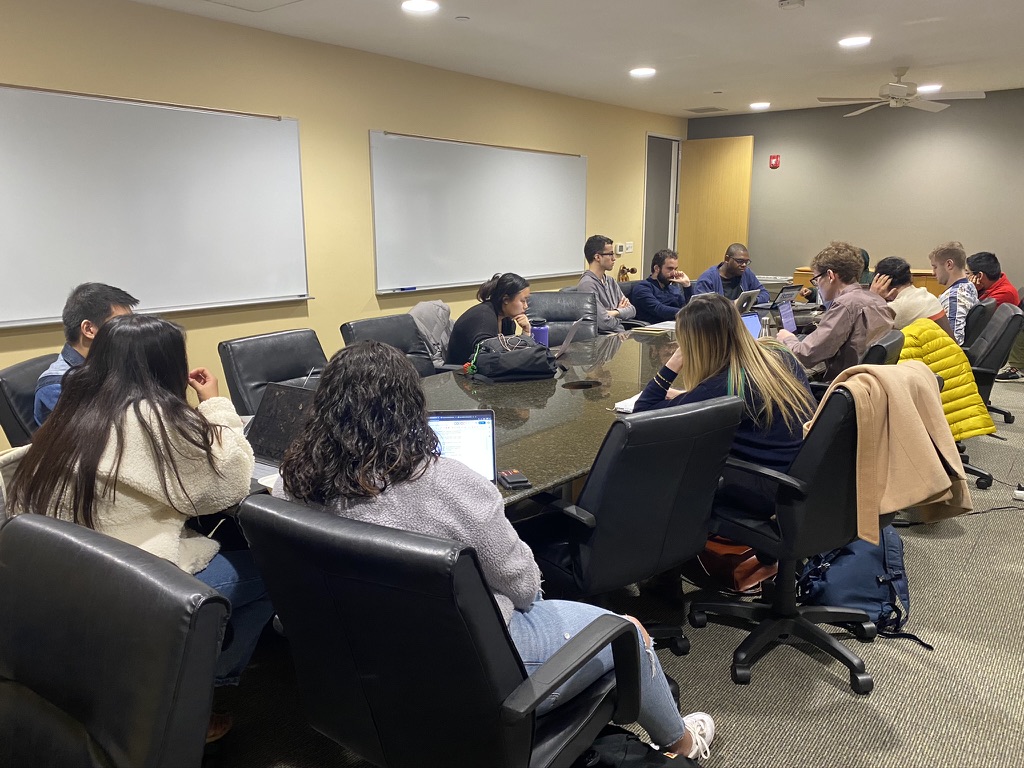After debate, the Undergraduate Senate tabled a resolution to ask the University to place kits containing Narcan — a nasal spray that can reverse an opioid overdose — in student residences, ultimately deciding that more research and input from the student body was necessary before the resolution could be passed.
During the discussion, the death of Eitan Weiner ’22 was publicly tied to recent AlertSUs and university-wide emails about fentanyl on campus for the first time.
“Someone on this campus died,” said Senator Micheal Brown ’22. “Let’s not take advantage of that to have some type of political victory for ourselves.”
Weiner died on Jan. 17 in his on-campus residence. Later that day, an AlertSU “Timely Warning” about fentanyl was sent to the campus community in accordance with the Jeanne Clery Act, but the alert did not mention Weiner, and no connection to his death was established.
Though the kits are an important issue, Brown argued, the resolution should not be passed haphazardly.
“How is this going to be implemented?” he asked. “When is this going to be implemented? By whom? These are questions of liability, legal questions, important questions. Our ASSU [Associated Students of Stanford University], our Senate, should not be publishing bills where we feel like there is a little gray area.”
Sam Schimmel ’22 — who introduced the resolution at last week’s meeting — pushed back against Brown’s concerns.
“There is not a single issue on this campus that is more important than student life,” Schimmel said.
“The science is settled,” he added. “When we introduce Narcan to communities, those communities are better off.”
After input from Senate Chair Munira Alimire ’22, the Senate reached the consensus that they would table the bill in order to gain more input from the student body, consult with stakeholders and identify the liability of placing the kits in the dorms.
“This is something that is within our powers as a Senate but we cannot pass resolutions or bills that do not have the requisite work,” Alimire said. “Even if we care deeply about that, that’s not the kind of things that we as elected officials should do … I feel like everyone in this room values competency and hard work a lot more than we value just making things happen. Because if we want to make something happen, we want it to last.”
Other items on the agenda included the “Resolution to Establish Free Bay Area Transport for Students” and the “Bill to Create Voting Records,” aimed at increasing Senate transparency. Senators have communicated with University staff as well as Caltrain administration to find out the details of providing free transportation options for students. Both proposals were largely supported by the Senate and were tabled until the next meeting to provide more time for the research.
New resolutions introduced at the meeting include the “Resolution to Form Permanent Community Centers for FLI and Disability Communities” and a “Bill to Re-Establish the Senate as a Continuous Body.” The former will focus on creating community centers that would function as a social center to complement already-existing academic centers, while the latter — sponsored by former three-term Senator Gabe Rosen ’19 — would introduce a constitutional amendment to elect half of the senators in the spring and half in the fall.
Contact Anastasia Malenko at malenk0 ‘at’ stanford.edu.
